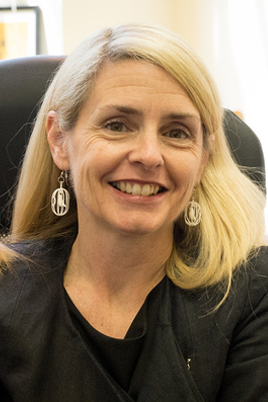Denise Brennan

Professor
Department of Anthropology
Georgetown University
Denise Brennan is a Professor of Anthropology at Georgetown University. Her scholarship focuses on trafficking, sex work, policing, migration, and women’s labor. Her most recent book follows the lives of the first survivors of trafficking to the United States. Life Interrupted: Trafficking into Forced Labor in the United States examines the connection between undocumented status and exploitation. It documents how individuals who endured severe abuse rebuild their lives, counters panics over the sex sector, and argues that policies that detain and deport undocumented people undermine efforts to prevent trafficking and find trafficked people.
Prof. Brennan is also currently writing a book project, Undocumented: Criminalizing Everyday Life in the United States. This book explores how 11 million undocumented individuals who are left out of any current immigration protections live everyday with the threat of deportation. It examines how they navigate state surveillance through racial profiling and manage the violent possibility of being forcibly removed from their family with the banal tasks of their daily lives. The book draws from field research inside the ”100-Mile Border Zone” (an enhanced immigration enforcement zone) along both the southern and northern borders, as well as in migrant communities in the U.S. interior. In this way, the book calls attention to how “border policing” happens far from any actual border.
Prof. Brennan is also the author of What’s Love Got to Do with It? Transnational Desires and Sex Tourism in the Dominican Republic that explores how Dominican women strategically use the sex sector to meet tourists, feign love, and legally migrate off the island through marriage. She is working on a new updated edition of the book. Today’s clientele are primarily African-American men, many of whom plan their vacation with their fraternity brothers. They — and the women they spend money on — must now contend with an increased police presence. Living in an anti-trafficking era means that anyone profiled as selling or buying sex risks policing and ”rescue.” This research with women who choose to sell sex, and keep all their earnings without interference from any intermediaries, stands as a powerful critique of the conflation of all sex work as trafficking. Their sex work isn’t coerced, but their rescues are.
In 2018-19 she was in residence as a Member of the Institute for Advanced Study in Princeton where I am writing Undocumented. Her research also has been supported by the Woodrow Wilson International Center for Scholars, the Harry Frank Guggenheim Foundation, the American Association of University Women, and the Fulbright Program. Her teaching has been recognized by the Georgetown University College of Arts & Sciences Dean’s Award for Excellence in Teaching, an Outstanding Community-Based Learning Course Award, and an Outstanding Faculty Instruction Award. She is also am an Advisor for the Best Practices Policy Project, and have been a board member of Different Avenues, and HIPS — organizations that work to protect the rights of people who engage in the sex sector. She founded the Trafficking Survivor Leadership Training Fund to which all royalties from Life Interrupted: Trafficking into Forced Labor in the United States are donated.
Education:
Yale University – Ph.D.
Johns Hopkins University – M.A.
Smith College – B.A.
